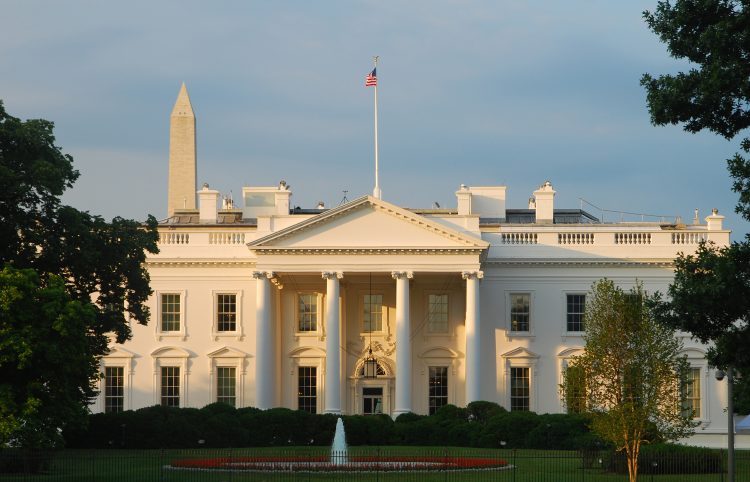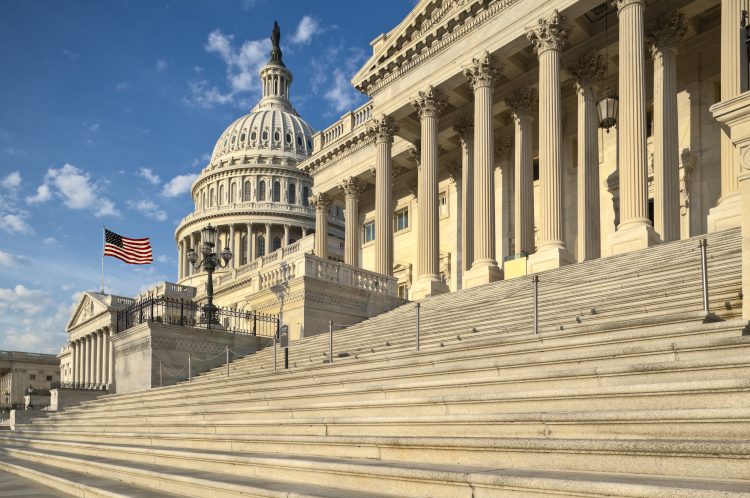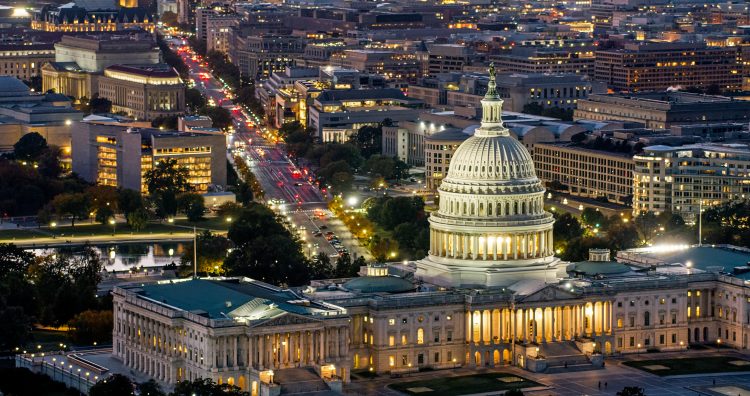This week on Facing the Future, Bob Bixby switched from the host chair to the guest seat to talk about his 25-year career as Executive Director of The Concord Coalition. National Field Director Phil Smith asked Bob questions about the importance of the federal budget, the fiscal outlook, and The Concord Coalition over the years. Later in the show, Phil interviewed two of our Fiscal Lookout volunteers, Kevin Wiley of Indiana and Erik Carter of New York, about the work of political depolarization and engaging their communities in fiscal issues.
Reflecting on how things have changed since The Concord Coalition began in 1992, Bixby highlighted how much bigger the problem has become. “The debt was somewhere around 4 trillion in those days, and people thought that was terrible. It just went over 35 trillion. Even as you look at it as a percentage of the economy, the debt has just exploded and the deficits have become much bigger. But I do want to point out that in the first 10 years of The Concord Coalition’s existence, the deficit went down every year. Then it turned to surpluses and the surpluses rose. If you go from 1992, when we began, to 2001, the budget was improving every year. It wasn’t until this century that the budget deficits really got out of hand. What that says to me is that it’s possible to make progress on this issue but we haven’t been doing it because we haven’t been making the changes that we need.”
“In order to do effective public education,” Bixby said, “you have to have credibility on the policy stuff so that people know that this is coming from a credible source.” But the philosophy of The Concord Coalition doesn’t only rely on the numbers and policy to spread its message. Bixby made clear that the organization is grassroots at its heart, “It was the mission of our founders, Paul Tsongas, Warren Rudman and Pete Peterson, to be a grassroots entity that would get the message of fiscal responsibility out. It had to come from people in the field and not just in the halls of Congress. I remember Paul Tsongas saying, ‘We’re not a think tank. There are plenty of think tanks, and they’re great. What we need to do is to educate the grassroots and then have the grassroots come back and educate their members of Congress.’ ”
In Concord Coalition fashion, Phil welcomed two volunteers from our grassroots network onto the show. Kevin Wiley of Indiana has been active as a Fiscal Lookout with the Concord Coalition since the 1990s and Erik Carter of New York is a financial planner and educator. Phil, Wiley, and Carter recently attended a Braver Angels conference that focused on depolarization.
Braver Angels began its work following the 2016 election. Carter said, “They got people together as supporters of both Hillary Clinton and Donald Trump to just talk to each other, try to understand where they were coming from. It was such a success that there are chapters now all over the country. So many times when you have these discussions people ask, ‘Okay, what next? How do we actually make a difference?’ A group like The Concord Coalition, started by a Democrat and a Republican and continues bipartisan leadership to this day, really just makes sense. Because this issue of fiscal responsibility is one that cuts across partisan lines and really requires depolarization to move the ball forward.”
The Concord Coalition hosted a booth at the most recent Braver Angels conference, and Wiley observed that, “First of all, people are very interested in solutions. Normally, you put a poster up there and you talk about fiscal responsibility, and people run the other way, right? They were interested. People came and talked to us. They picked up our information. That’s a very good indicator that there’s plenty of interest out there. At no time did they discuss their political affiliation, they just wanted to see what it was all about. Many of the co-exhibitors that I went around and talked to were all interested in what we were doing, and likewise we’re interested in what they’re doing.”
The Concord Coalition also hosted our popular Principles and Priorities interactive exercise at the Braver Angels conference. It requires groups to assemble a 10-year federal budget plan with the debt and deficit in mind. “I think the thing that stands out to me was how eye-opening it was for a lot of people to see the actual numbers,” said Carter. “For the people identifying as Democrats to see that you couldn’t shrink the deficit just by raising taxes on the wealthy and corporations, and people identifying as Republicans seeing that you can’t just do it by cutting waste and foreign aid. But at the end of the day the big shock to me was a lot of the red folks were willing to raise taxes pretty much across the board, and a lot of the blue folks actually signed on to the Paul Ryan Medicare plan. That was a really interesting result.”
Hear more on Facing the Future. Concord Coalition Executive Director Bob Bixby hosts the program each week on WKXL in Concord N.H., and it is also available via podcast. Join us as The Concord Coalition team discusses issues relating to national fiscal policy with budget experts, industry leaders, and elected officials. Past broadcasts are available here. You can subscribe to the podcast on Spotify, Pandora, iTunes, Google Podcasts, Stitcher, or with an RSS feed. Follow Facing the Future on Facebook, and watch videos from past episodes on The Concord Coalition YouTube channel.
Continue Reading










